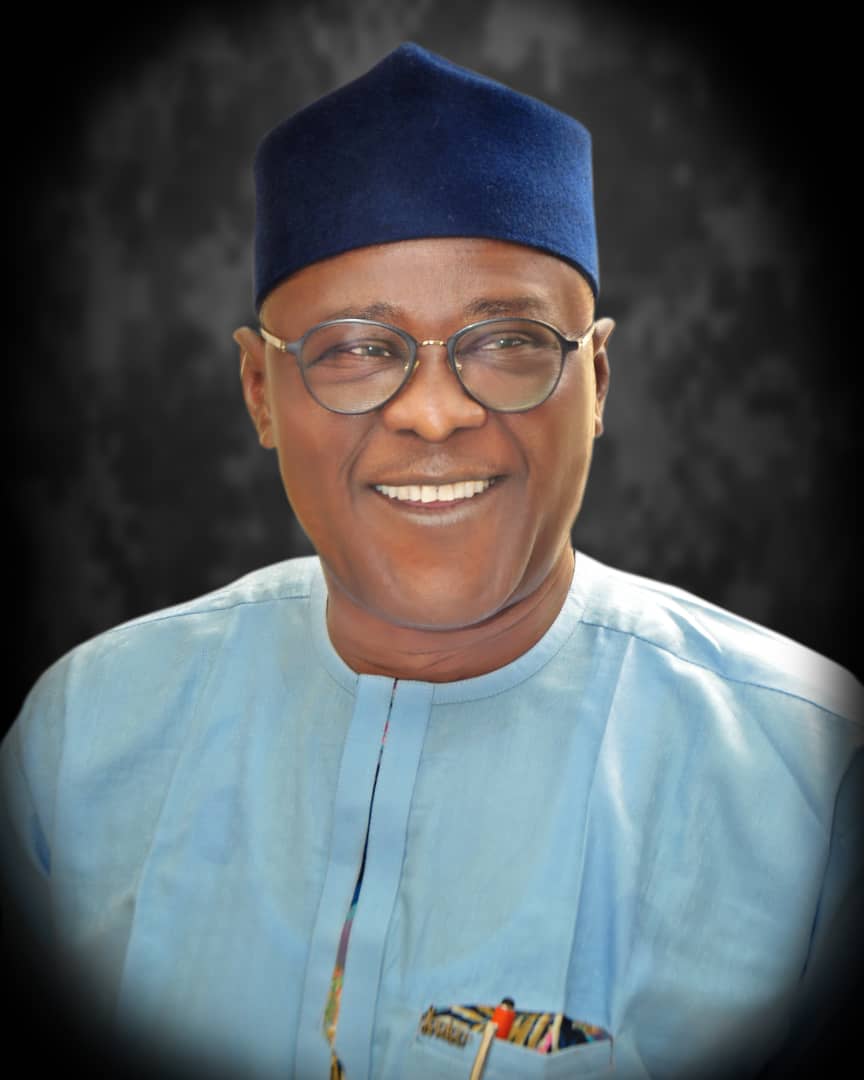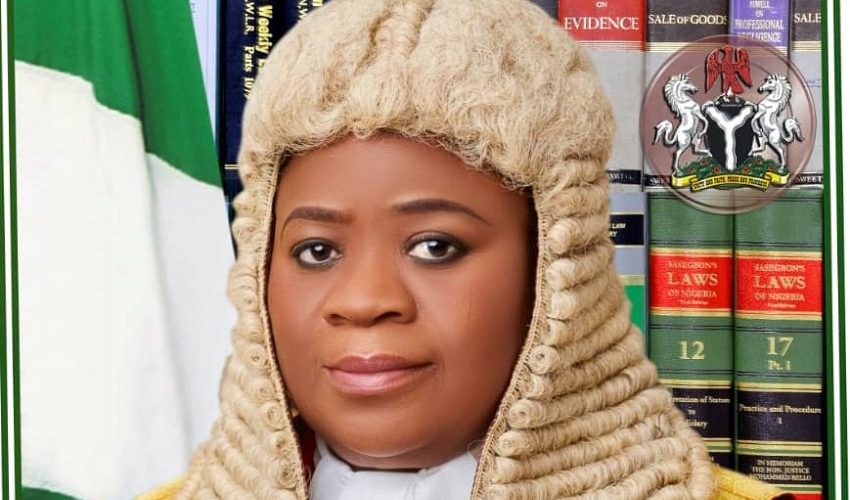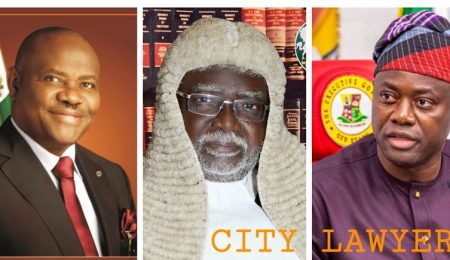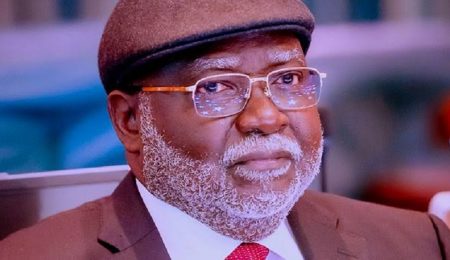COURT OF APPEAL AT 45: MILESTONES IN JUDICIAL REFORMS
By Hafizu Isah
“Look at the past, then you learn about the future.” – Chinese proverb
When the Federal Court of Appeal was established in 1976 following Decree (now Cap. C36 Laws of the Federation of Nigeria 2004) the aim was to help lighten the burden of the Supreme Court. In other words, it came to serve as a bridge between the Lower Courts and the Apex Court.
Owing to the 31st December, 1983 Military Intervention and the promulgation of the Constitution (Suspension and Modification) Decree, 1984 the name of the Court was changed from Federal Court of Appeal to the Court of Appeal.
The Court of Appeal was established as an Appellate Court to entertain Civil or Criminal appeals from the Federal High Court, High Court of the Federal Capital Territory, High Courts of the 36 States as well as National Industrial Court, Customary Courts of Appeal of states and the Federal Capital Territory, Sharia Courts of Appeal of States and the Federal Capital Territory, Election Petition Tribunal, Appeals from Martial Court, Code of Conduct Tribunal, Investments and Security Tribunals, Legal Practitioners Disciplinary Committee, and most recently, the Alternative Disputes Resolution (ADR) which was established on 28th June, 2018.
GROWTH:
At the onset, the Court of Appeal started with 3 Judicial Divisions: Lagos, Kaduna, and Enugu. Lagos Division recorded its first criminal appeal on the 10th of March, 1977 between DURO AJAYI, BAMIDELE AJAYI and DARAMOLA DADA vs. THE STATE, brought before their Lordships Hon. Justices D.O. Ibekwe, Hon. J. Omo-Eboh, of blessed memories and Hon. D.O. Coker. On the 9th of May 1977 in Kaduna Division the first culpable homicide appeal involving ONOBERE SUNMONU vs. THE STATE was brought before their Lordships Hon. Justices late Mamman Nasir, late S.I. Ete and M.L. Uwais. The late Hon. Justice B.O. Kazeem sat with Hon. Justice D.G. Douglas and late M.M.A. Akanbi, at the Enugu Federal Court of Appeal Division on 12th May, 1977 to adjudicate its first criminal appeal that involved NWEKE UNUGU vs. THE STATE.
With the 3 operational Divisions, the need arose for expansion. As a result, in June, 1977, additional Divisions were established in Ibadan and Benin and in January, 1983, Jos Division came alive. This expansion continued in 1989 as Port Harcourt Division was established and subsequently Abuja Division came to light in 1996.
With increase in demand for services of the Court of Appeal, 2 Judicial Divisions sprang in Ilorin and Calabar in February, 1999 totalling 10 Judicial Divisions. 1999 to 2009 witnessed the establishment of six more Divisions namely: Owerri, Sokoto, Yola, Ekiti, Akure, and Makurdi, bringing the Divisions to 16. To further take justice delivery closer to the people, 4 Divisions: Asaba, Awka, Gombe and Kano, were added between 2014-2019. 45 years on, the Court of Appeal boasts of 20 Judicial Divisions, spread across the six geopolitical zones of Nigeria.
As the second longest President of the Court of Appeal, Hon. Justice Umaru Abdullahi, CON the Walin Hausa puts it, “the Court of Appeal is where the decisions are made; the Supreme Court merely whitewashes it” hence, the need for justice delivery to be taken seriously and closer to the people.
From the above perspective, the need beckoned to increase the number of Justices adjudicating in this Noble Temple from the initial 36 it started with to 41 in 1990. Again, it rose to 50 in 1993 and to 70 in 2006. With the Court of Appeal Amendment Act of 2013 the number increased to 90. Currently, the Justices are 85 in number.
The Court has produced 7 presidents namely:
The Late Hon. Justice D.O. Ibekwe, CFR 1976 – 1978
The Late Hon. Justice Mamman Nasir, GCON 1978 – 1992
The Late Hon. Justice Mohammed Mustapha Akanbi, CFR 1992 – 1999
Hon. Justice Umaru Abdullahi, CON 1999 – 2009
Hon. Justice Isa Ayo Salami, OFR 2009 – 2012
The Late Hon. Justice Dalhatu Adamu (in Acting capacity) 2012 – 2013
Hon. Justice Zainab Adamu Bulkachuwa, OFR, CFR 2014 – 2020
Hon. Justice Monica Bolna-an Dongban-Mensem 2020 – to date
Sitting in the former Federal Capital of Nigeria, the Court was accommodated in the old Supreme Court Complex now Lagos Division. With the movement from Lagos to Abuja, the Court of Appeal domiciled at the Area 3 office complex which now houses the National Industrial Court (NIC). It was during the tenure of the then President, Court of Appeal Hon. Justice Umaru Abdullahi, CON that all hands were put on deck to build a befitting office complex, commissioned by the Ambassador of the Rule of Law and Commander-In-Chief of the Armed Forces, late President Umaru Musa Yar’adua, GCFR, on 15th December, 2008.
The Court of Appeal on top of history right now, is a melting pot where justice is justice without colour, section or place of origin, where all the Justices must sit together in a quorum to take decision in any matter devoid of sentiment. This is the reason some Senior Advocates of Nigeria have been speaking on the developments as the Court turns 45 years old.
Historically speaking, for Chief Adegboyega Awomolo, (SAN) who has spent over three decades at the Bar, the establishment of the Court of Appeal as an intermediate Court between the High Court and the Supreme Court is justified. For Chief Garba S. Pwul, (SAN) the Court has been extraordinary in terms of effective expansion, performance and impacting positively on the legal system of Nigeria. While Chief Patrick Ikwueto, (SAN) is of the view that the Court has done tremendously and has lived up to its statutory mandate in discharging its functions creditably.
Chief Awomolo puts it thus, “The court has justified its existence, no doubt it has over the years produced very eminent jurists, some of whom ended their career in the Supreme Court, others retired as Justices of the Court of Appeal or Presidents of the Court of Appeal. To me, the Court of Appeal is desirable but it has to spread to a wider area because litigation in 1976, 1986, 1996, 2006 and now are never the same. Nigerians are getting more conscious of their legal rights and of course, people are now beginning to feel that it is better to test the decision of the High Courts in the Court of Appeal where three gentlemen of the learned profession will sit to consider the decision of one man.”
In the opinion of Chief Pwul, “To give a run-down of the performance of the Court of Appeal, first of all, to get to 45, is a great achievement. I started practising in 1982, and my posting as a Youth Corps member was in the Court of Appeal, Kaduna Division. I would say the Court of Appeal has come a long way in terms of expansion, performance and impact on our legal system. When I joined the Court of Appeal, there were only three divisions of the Court. Today, we have Divisions in more than half of the 36 states of Nigeria. In bringing justice proximate to the people, it is on record that the number of appeals determined every single year by the Honourable Justices is an indication that they have performed amazingly in the past 45 years.”
Learned Silk, Chief Patrick Ikwueto in his contribution observed that, both the Trial Courts and the Courts below and even practitioners who come before the courts are encouraged to do their work because in all human endeavours there are chances of making mistakes. The great Jurist, Oputa averred, when he referred to the Supreme Court as not being infallible because as human beings they could make mistakes, but since ‘’we are final, we are infallible’’ Ikwueto remarks.
Furthermore, Ikwueto is of the view that if there was no Court of Appeal, then the facts of the case at the Trial Courts won’t be tested, and if you were to have all these coming to the Supreme Court without an intermediary Appellate Court, obviously the situation would be very chaotic and ‘’I think that the Court of Appeal has lived up to its statutory mandate and it is worthwhile to have that appellate sieving platform whereby, judgements and decisions of the Trial Courts are tested again before they go to the Apex Court for final determination. The Court of Appeal indeed is a deserving intermediary between the Trial Courts and the Supreme Court.”
COA: A Confluence Where Justice Delivery meets with Information Technology
“A Justice without basic computer knowledge should not be appointed into the Appellate Court against the backdrop that today’s Information Technology (IT) has completely taken over all human endeavours that there is hardly anything one can do without it.’’
– Chief Folake Solanke (first female SAN), Annual Justices conference 2020
The use of information communication technology is considered one of the key elements to significantly improve the administration of justice. In the knowledge, the world has rapidly developed into a global village which has opened new opportunities that were unthinkable some years ago.
Around the world, several reforms have been introduced to allow the use of enhanced electronic data and documents within the judicial systems. The availability of web services, the possibility of consulting online legislation, the use of electronic filing, electronic exchange of legal documents are spurring the judicial administration across the globe to rethink their functions and activities, enhance efficiency, access, timeliness, transparency and accountability that will help the judiciaries to provide adequate services.
The imperative of adequate ICT infrastructure in the sustenance of a thriving judicial system cannot be over-emphasized. This much Joe Kyari Gadzama, a Senior Advocate of Nigeria shared in a paper he presented recently, that given the number of cases being filed in different courts, it is necessary to review the workload on the Judiciary. He said: “We do need to realize the fact that the human brain has its limitations; hence, the era and practice of our Justices writing in longhand needs to be dispensed with for good.”
At a point when the world was almost shutting down as a result of the Covid-19 pandemic, was the period the 7th President of the COA, Hon. Justice Monica Dongban-Mensem assumed office. The period came with opportunities and challenges however, the new President came prepared.
From the different view points, Covid-19 engulfed the world with such a speed faster than the speed of light. Everyone became worried, scientists intensified research into the causes and possible vaccines to curb further spread and deaths.
As the virus spread its tentacles, it posed concern to medical experts and world leaders since every hope of finding cure seemed bleak. Thus, the world shut-down to prevent further spread. The only option was to Wash Your Hands Frequently with Soap under a Running Water; Wear a Facemask; Use Hand Sanitizers where Soap and Water is Not Available and Maintain Social Distancing.
This indeed changed how things were done. A world which thrived in trade and exchange of human resources now became completely locked down; forcing leaders and stakeholders to think deeply on how to sustain their economies to tally with human demands.
Back home, President Muhammadu Buhari declared the shutdown of the Federal Capital Territory, Lagos and Ogun States on 29th March, 2020 when it became obvious that the cases as well as death tolls were on the increase.
The Nigerian Judiciary was not left in the limbo! The Chief Justice of Nigeria, Hon. Dr. Justice Ibrahim Tanko Muhammad, Attorney-General of the Federation, Abubakar Malami, SAN and Head of Courts brainstormed on the way forward since the judiciary was a public institution where litigants, lawyers and Justices gather to adjudicate legal matters. Thus, Guidelines were rolled out on how the workforce would operate.
The little things that we do can become powerful if we reinvent ourselves
At the Court of Appeal, the Hon. President, Justice M. B. Dongban-Mensem brought the conversation to the front burner by engaging the services of virologists, Dr. Patrick Dakum, Chief Executive Officer, Institute of Human Virology and Prof. Abdulsalam Nasidi, former Director-General, Nigeria Centre for Disease Control (NCDC) to parley with some Justices and senior Management Staff on veritable opportunities for reform in Court Processes through tele-adjudication; imploring the use of zoom as a veritable platform to engage her brother Justices and Staff.
Armed with this knowledge, Dongban-Mensem said that the COVID-19 pandemic was a wakeup call for the court as a professional organisation to have full grasp while complying with the lockdown directive; ‘’but considering that the court has to adjudicate on urgent, essential and time-bound matters we should not completely close our doors to the public.’’ For the first time in 45 years of the Court, she experimented the use of Zoom to hold meetings and conferences with Justices and Sectional Heads while beefing up the ICT Department with the required technology to ensure that Court of Appeal is at par with other Judiciaries across the globe.
Fallout of Her Steady Strides
No doubt, the year 2020 had been eventful, not only in the history of Nigeria but the judiciary as well; especially the Court of Appeal with over 34,000 pending appeals spread across its 20 Divisions.
Recall that all through the lockdown from 25th March, to 30th June, 2020 Hon. Justice Dongban-Mensem confronted the fear that surrounded COVID-19 pandemic with faith to lead her colleagues by setting up Special Panels with the Justices drawn from all the Divisions. Special permits were obtained from the Police Force to cover their movements to expeditiously determine a total of One Thousand Three Hundred and Fifty-Six (1356) Appeals and One Thousand Nine Hundred and Sixty(1960) Motions.
More significantly was that a total of 528 Judgements (16.97% of the total number of Judgements) were delivered via the Zoom Online Platform during the course of the 2020-2021 Legal Year while 10 hearings were held by Panels of the Court using this platform.
The Panels at the Kaduna and Jos Divisions respectively delivered Six (6) and five(5) Judgements via the Zoom Platform, which was a first for the Court.
The Court has begun to re-design structures for internet bandwidth throughout the 20 Divisions and Justices’ Residential Quarters. This pilot scheme has connected Divisions like Calabar, Kano and Asaba to the online network for optimal smarter justice delivery.
At the Court of Appeal Headquarters in Abuja, an IP telephony infrastructure has been set up to allow the use of an intercom system, which works with the computer network. The plan is to extend this to cover all other Divisions so that inter-divisional communications will soon be effortlessly conducted on intercom, thus improving efficiency and productivity.
The Honourable President Court of Appeal harped on the need to move with the change as one can never be too trained. In walking the talk, since assumption of office, she has, through the ICT and Training Departments continuously trained Justices and Staff based on their professional needs.
She hosted the maiden edition of a training collaboration between the Court of Appeal and the Ministry of Communications, where the National Information Technology Development Agency (NITDA) trained 50 Justices on productivity tools to uplift the quality of justice delivery with a view to reliving them of the old method of judgement writing and researches in longhand.
The ICT Committee of the Court has also been avidly involved in the provision of digital research tools: ‘’We have begun a partnership with the Nigeria Weekly Law Reports (NWLR) to provide web access to their reports, thus empowering our Justices to conduct easier online research. An active ICT culture will drastically reduce the incidence of conflicting judgements,’’ she disclosed.
To further tackle the issue of conflicting judgements, the Hon. President compiled some landmark pronouncements on Pre-Election Appeals/Judgements of the Court that sat in Abuja, Awka, Calabar and Kano Divisions which was circulated to the Justices.
A journey through the Court of Appeal, different sides of her personality
In every change of leadership there are always great expectations placed on the new leader. With the current leadership of Hon. Justice Monica Dongban-Mensem, Chief Adegboyega Awomolo, (SAN) Chief Garba S. Pwul, (SAN) and Chief Patrick Ikwueto, (SAN) all agreed that the current PCA has taken the Court a step further in terms of bringing innovations, her administrative prowess in court management, and how she has led the Court thus far in this unprecedented times of COVID-19 Pandemic.
‘’The Hon. President introduced the first ever recorded Mediation case in the Court and continues to promote the use of Alternative Dispute Resolution (ADR). She has been able to decongest appeals in the Court which brought down the backlog to a reasonable and manageable number,’’ Chief Awomolo observed.
Chief Garba S. Pwul, (SAN) noted that despite the challenges of using the ADR after cases must have passed through the High Court, it is still better to go for the ADR than to insist on pure judicial process with its technicalities and delays.
Chief Patrick Ikwueto, (SAN) concurred with Pwul that the Court of Appeal pro-actively has ADR provision in its rules but that the issue of mediation or even reconciliation is consensus: ‘’The parties involved must agree and most lawyers are not very comfortable with resolving matters by means of ADR. Unfortunately, most lawyers, because of the way we are trained, still think that they must argue their matters in court because the Justices cannot impose ADR on them but recommend they explore ADR,” said.
According to the Learned Silk, ‘’there was a time in the past when England introduced what you call compulsory mediation so that if you refuse to take mediation process and the matter is eventually determined against you, then cost will be heavier against you.’’
However, there is need to improve on the level of coercion the court can exercise with respect to forcing litigants, particularly counsel of these litigants to, as a matter of compulsion, explore mediation. ‘’If this is done, perhaps the backlog might reduce but mind you, there are some matters that are not amenable for resolution by mediation or reconciliation. For instance in criminal matters, you can’t compound felonies. There are also some domestic matters like matrimonial causes.’’ Ikwueto suggested.
‘’I do not see why civil litigation or special criminal matters like EFCC, forfeiture proceedings should not be looked into by a neutral party who is a mediator or conciliator? I suggest that concerted effort needs to be made to let people understand that in ADR, there is usually a win-win for everybody unlike in the customary litigation where one side must lose, and the other must win.’’ He asserted.
On the whole, the trio called on the Court to continue in its impressive growth.
“Your Lordship should create virtual centres that will introduce a rich blend of courtroom practice that will serve Nigerians and the world at large. To achieve this, the Court must ensure that the procedural rules accommodate recent technological advancements to enhance prompt delivery of justice.” The Learned Silks proposed.
CONCLUSION
‘’My Lord, the President has shown exemplified creativity in her two years of assumption of office. She has shown that she is thinking outside the box. She has taken steps that endear her to the Bar. She has carried out a lot of reforms that give us hope. All she needs now is to create opportunity for conversations on the way forward. Let conversations between the Bar and the Bench begin.’’ – Chief Adegboyega Awomolo SAN
‘’I commend her. I pray and wish her good health. I believe that she will go from height to height, strength to strength as she continues to lead by example. I am sure that she is a good team manager. There are no complaints, no rancour and conflicts between her and the Justices. Therefore, these are exemplary leadership, it is commendable. I think she is poised to achieve a lot more.’’ – Chief Garba S. Pwul SAN
“I am from Anambra State. I have experienced her administrative prowess in terms of court management from a distance. She has shown that the Court of Appeal is one. She has the fear of God in her. I don’t think anybody will say her tenure is characterized by any improper conduct, though she is human, never the less so far, she has shown character which is key!”
“What I can do is to keep on praying for her. I know that she is a prayerful person, so I will keep on praying for her. May the good Lord she serves continue to show her the light to follow the right path. To show her that serving mankind, particularly in position of being a judge, because the next person after God on earth is a judge as only a judge has the power of life and death over a fellow human being. Therefore in the onerous task the judge has, it is important to also know that as Godlike, a judge must also be like a father. I will keep praying for her to continue on the path that is best for not only mankind, but to the glory of God.’’ – Chief Patrick Ikwueto SAN
In a brotherly spirit, the then CJN had this to say to the PCA: “As a seasoned Judicial officer in the system, you have been doing your job satisfactorily. It is as a result of your hard work, character and attitude that both the Court of Appeal and the National Judicial Council collectively decided to uplift you to the position of the President of the Court of Appeal.”
“I am pretty sure as I know you very well, except you have changed which I have not noticed please continue with your charisma, attitude and ability to carry out the task assigned to you. Please continue to bear that testimony.” – Hon. Dr. Justice Ibrahim Tanko, CJN CFR
- Isah is a retired Chief Registrar of Court of Appeal




